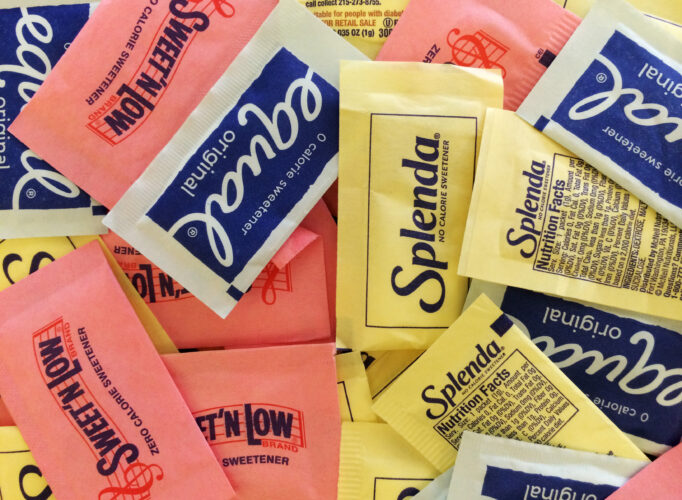A chemical found in the most widely used artificial sweetener, sucralose (popularly consumed as ‘Splenda’) harms human DNA, according to new research.
A study from North Carolina State University revealed findings that formation of a toxic chemical occurs when people digest the prevalent artificial sweetener, deeming the product “genotoxic,” meaning DNA is damaged by it.
That chemical is also found in trace amounts in the sweetener, itself and authors of the study assert “the finding raises questions about how the sweetener may contribute to health problems.”
Prior research from the team “established that several fat-soluble compounds are produced in the gut after sucralose ingestion,” adding that “one of these compounds is sucralose-6-acetate,” according to the university’s news release.
The most recent body of work now “establishes that sucralose-6-acetate is genotoxic,” according to biomedical engineering professor at North Carolina State University and co-author of the study, Susan Schiffman.
“We also found that trace amounts of sucralose-6-acetate can be found in off-the-shelf sucralose, even before it is consumed and metabolized,” Schiffman added.
“To put this in context, the European Food Safety Authority has a threshold of toxicological concern for all genotoxic substances of 0.15 micrograms per person per day,” Schiffman explained. “Our work suggests that the trace amounts of sucralose-6-acetate in a single, daily sucralose-sweetened drink exceed that threshold. And that’s not even accounting for the amount of sucralose-6-acetate produced as metabolites after people consume sucralose,” she added.
The research included a series of experiments where human blood cells were exposed to sucralose-6-acetate and observed for “markers of genotoxicity.” Schiffman claimed the research team “found that sucralose-6-acetate is genotoxic, and that it effectively broke up DNA in cells that were exposed to the chemical.”
The research also exposed human gut tissues to sucralose-6-acetate to reveal potential damage to the microbiome. “Other studies have found that sucralose can adversely affect gut health, so we wanted to see what might be happening there,” Schiffman said. “When we exposed sucralose and sucralose-6-acetate to gut epithelial tissues—the tissue that lines your gut wall—we found that both chemicals cause ‘leaky gut.’”
“Basically, they make the wall of the gut more permeable. The chemicals damage the ‘tight junctions,’ or interfaces, where cells in the gut wall connect to each other,” Schiffman described. “A leaky gut is problematic, because it means that things that would normally be flushed out of the body in feces are instead leaking out of the gut and being absorbed into the bloodstream.”
This research spawns a plethora of alarms regarding budding health effects connected to sucralose and its metabolites. “It’s time to revisit the safety and regulatory status of sucralose, because the evidence is mounting that it carries significant risks. If nothing else, I encourage people to avoid products containing sucralose. It’s something you should not be eating.” Schiffman cautioned.
Despite the Food and Drug Administration’s approval of sucralose since 1998, the World Health Organization recently released new guidelines urging people to stop using non-sugar sweeteners to control body weight.
While sucralose is made from sugar, it is not a natural product since production includes a multi-step chemical process which switches three hydrogen-oxygen groups for three chlorine atoms. The sweetener interacts with sensory receptors which play a role in sweet taste sensation and hormone secretion.


















Add comment